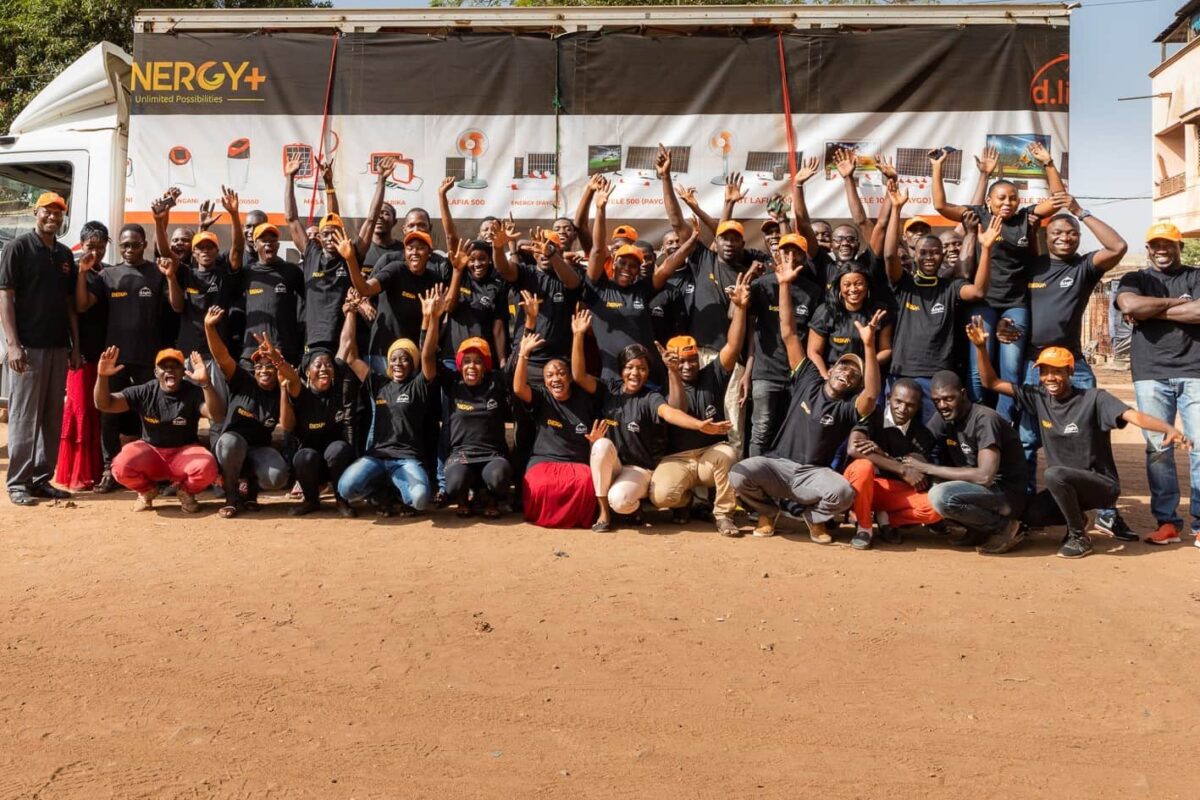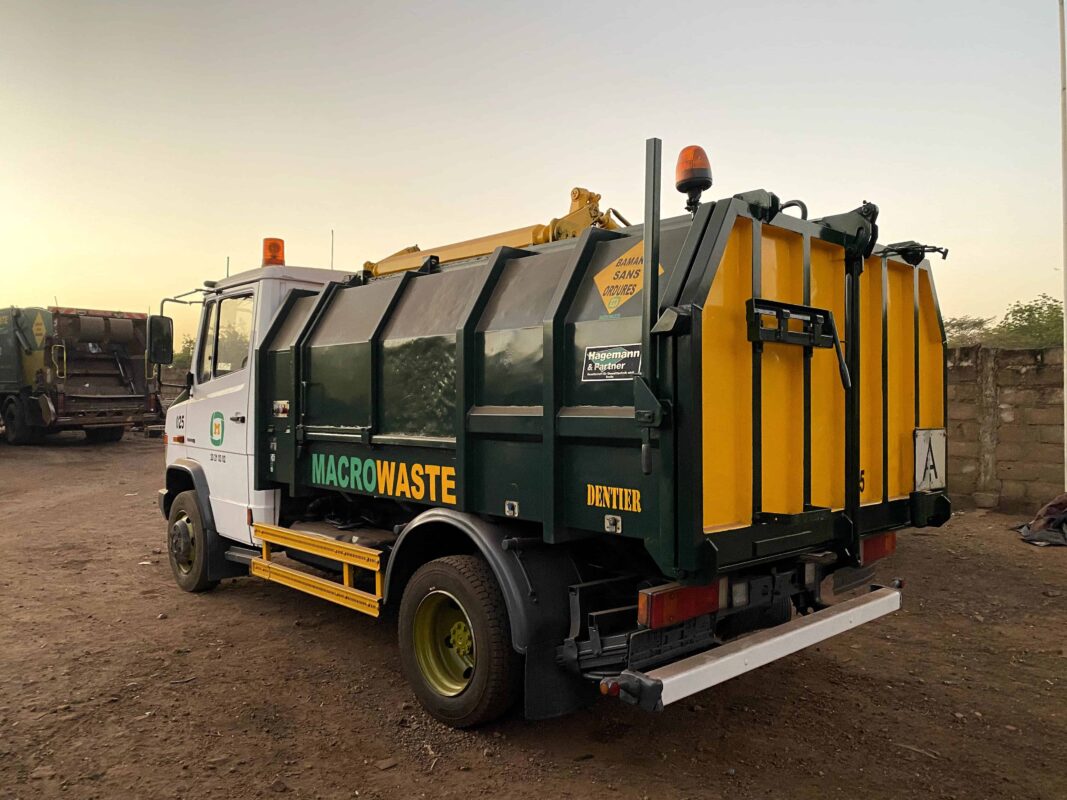Le Centre de commerce et d'investissement en Afrique de l'Ouest et le NOUS. Société de financement du développement international (PLCC) are providing more than $16 million in grants and guaranties to small and medium-sized enterprises in Africa’s Sahel region that sets the foundation for a series of impact investments aimed at addressing some of the region’s biggest challenges, ranging from climate change to unemployment.
Les États-Unis. Agency for International Development-funded Trade Hub announced Dec. 9, 2020 it will provide an investible first-loss grant of $2 million to Cordaid Foundation and its impact investment management partner, Cordaid Investment Management B.V. (CIM), to support lending to small and medium enterprises and micro finance institutions in Burkina Faso, Guinée, Mali and Sierra Leone.
Using a blended finance model, the Trade Hub’s grant is combined with a loan portfolio guaranty of $14.75 million from the DFC that will attract additional investment, allowing Cordaid to lend at least $37 million to 50 companies and eight microfinance institutions, supporting at least 2,100 new jobs and 8,000 microentrepreneurs.
“Our partnership with Cordaid Investment Management and the work they’re doing touches on so many important themes for the Trade Hub, and the innovative nature of this grant gives other firms a new model for what’s possible in an impact investment in the region," dit Michael Clements, le chef du groupe du Trade Hub.
With an emphasis on job creation and elevating youth and women’s economic inclusion, the DFC, Cordaid and the Trade Hub are allied around the mission of bringing economic stability to fragile states driven by the private sector.

Dans le cadre des États-Unis. du gouvernement Prospérer l’Afrique stratégie, the Trade Hub seeks to bolster trade, employment and innovation in key sectors in 16 West African countries through impact investments. Since the onset of the COVID-19 pandemic, the Trade Hub’s work has taken on a new urgency.
The timing of the Trade Hub’s grant has enabled us to continue with the momentum we’ve been building to grow our portfolio in the region even during the COVID crisis,” says Brenda Pennell, Senior Investment Manager at CIM. “What the process has highlighted for me is the very positive and productive partnerships that can be forged with USAID and the Trade Hub, to identify where the need for our investment capital is and how we can deploy it to maximize impact.
With a goal of stabilizing local economies and creating jobs, this first project is a testament to the kind of impact the Trade Hub aims to catalyze, says Jim Winkler, Vice President at Creative Associates International, which is implementing the regional program on behalf of the U.S. gouvernement.
“We’re excited to see how an emphasis on people combined with a strong record of investment in the region will generate real impact," dit Winkler.
Most of CIM’s lending will support long-term loans to SMEs, with the remainder targeted to microfinance institutions with direct access to microenterprises. Pennell says these businesses and entrepreneurs are the life blood of the Sahel’s local economies. Investing the capital they need to grow, particularly as the region is further stressed by the pandemic and political unrest, is critical to any kind of economic sustainability initiative in the region.
“We really do want to serve the missing middle, so those investees whose financing needs fall between what can be offered by a local bank and what can be provided by a large international investor,” says Pennell.

Empowering local entrepreneurs
CIM already has strong relationships in Mali and Sierra Leone and, with the Trade Hub’s funds and DFC’s guaranty, the organization is ready to engage local businesses in its pipeline, while expanding to Burkina Faso and Guinea.
An early investee of Cordaid’s is Macrowaste, an SME in Mali working to transform the country’s broken waste management system. Founded by two Malians, Macrowaste’s mission is to provide sanitary, efficient and humane waste management services.
“The trash industry is connected to so many things,” says Abdoulaye Tangara, co-founder of Macrowaste and Chief Operating Officer. “It’s a humanitarian issue.”
Macrowaste is also an example of the “missing middle,” or a firm unable to access financing via traditional methods.
“There are a lot of young people who have great ideas, but who need an opportunity to bring that idea to life,” says Lamine Dembele, President and CEO of Macrowaste. “That is what Cordaid did for us.”
Working in the world’s most fragile markets
Cordaid, which stands for the Catholic Organization for Relief and Development Aid, has nearly a century of experience working in the world’s most fragile economies. In regions afflicted by conflict or natural disasters, Cordaid promotes people’s and societies’ resilience through economic empowerment. Cordaid leverages its programmatic impact through its mission-aligned investment portfolio managed by CIM.
Fragility in the Sahel is a big issue and a big challenge, and it’s certainly a multi-faceted challenge, and we don’t pretend that our investments will be a silver bullet,” says Pennell. “But we look for investment opportunities that can at least help address some of these specific challenges that arise due to demographic challenges and climate change challenges.
With at least 30 percent of lending slated to support women-led businesses, the project also advances both the DFC’s 2X Women’s Initiative, which aims to unlock women’s economic potential on a global scale, and the Trade Hub’s commitment to dedicate half of total jobs created through its grants to women.
“Investing in women can have a significant impact on their families and communities as well as on the local economy,” says Nina Verduin, ESG/Communication Officer at Cordaid. “As women are often disadvantaged, particularly in more fragile countries, we aim to find SMEs that are founded by, managed by or hiring a lot of women, so we can invest in women’s economic opportunities and thereby create more economic balance in the country.”
Cordaid is also focusing its investments with firms dedicated to employing youth, a critical piece of the puzzle when looking at the region’s development challenges. Migration and instability hit women and youth the hardest, so building their agency through economic independence is a major goal for both the Trade Hub and Cordaid.
Regarder vers l'avenir, the Trade Hub is poised to catalyze similarly impactful investments in the region. At the heart of its transactions and partnerships is a deep desire to build lasting, equitable economic prosperity in West Africa.